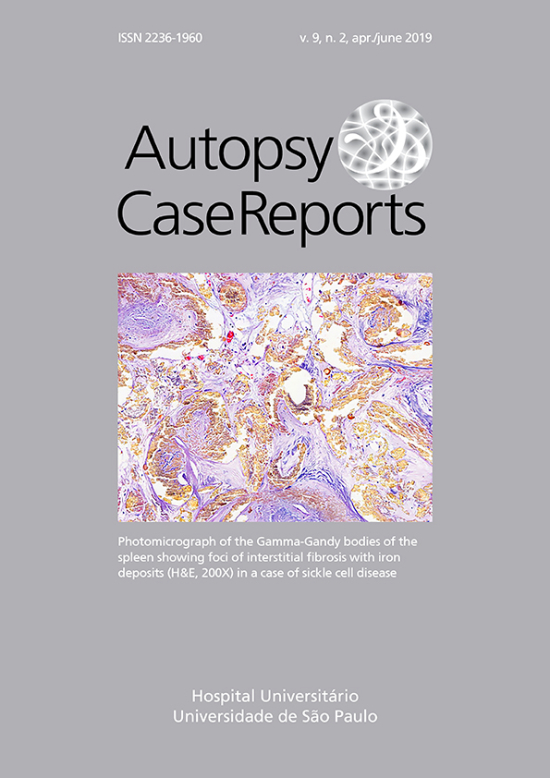FOLFIRI as second-line treatment of metastatic biliary tract cancer patients
Keywords:
Biliary Tract Neoplasms, Fluorouracil, Neoplasm MetastasisAbstract
The combination of cisplatin and gemcitabine is the standard first-line treatment of metastatic biliary tract cancer (BTC) patients. The benefit of second-line chemotherapy in these patients is controversial. This study aims to evaluate the activity of FOLFIRI (fluorouracil and irinotecan) after failure to the first-line platinum and gemcitabine-based chemotherapy in metastatic BTC patients. We present a single-institution, retrospective cohort study. Patients with locally advanced or metastatic BTC who progressed after at least one line of chemotherapy, consecutively treated at our Institution between 2007 and 2017 were included. The primary endpoint was progression-free survival (PFS), and the secondary endpoints were overall survival (OS), clinical benefit rate (CBR) and safety profile of FOLFIRI. Twelve patients were included in the analysis, with a median follow up of 5 months (95% CI 2.77-7.20). The median number of cycles received was 3 (range 1 to 9). Four grade 3 toxicities were recorded; no grade 4 toxicities and no treatment-related deaths occurred. The median PFS was 1.7 months (95% CI; 0.66-2.67), and median OS was 5 months (95% CI; 2.77-7.20). Two patients presented stable disease, providing a CBR of 17%. We concluded that FOLFIRI presented a favorable toxicity profile and a modest activity in metastatic BTC patients who had progressed to platinum and gemcitabine and may be considered in patients who are able to tolerate additional lines of chemotherapy. Immunotherapy and targeted therapies selected according to the tumoral genomic profile are promising alternatives to improve the outcomes of second-line treatment in BTC.
Downloads
Published
Issue
Section
License
Copyright
Authors of articles published by Autopsy and Case Report retain the copyright of their work without restrictions, licensing it under the Creative Commons Attribution License - CC-BY, which allows articles to be re-used and re-distributed without restriction, as long as the original work is correctly cited.



